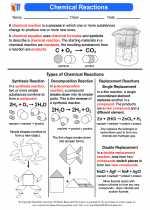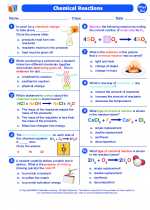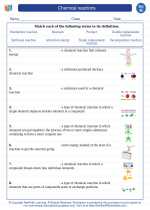Plants
Plants are living organisms that belong to the kingdom Plantae. They are multicellular, eukaryotic organisms that perform photosynthesis, have cell walls made of cellulose, and have a life cycle that includes alternation of generations.
Plant Structure
Plants have a complex structure that allows them to carry out essential functions such as photosynthesis, reproduction, and nutrient transport. The main parts of a plant include:
- Roots: These are responsible for anchoring the plant in the soil and absorbing water and nutrients.
- Stems: Stems provide support for the plant and serve as the main transportation system for water, nutrients, and sugars.
- Leaves: Leaves are the primary sites of photosynthesis, where plants convert light energy into chemical energy.
- Flowers: Flowers are the reproductive structures of the plant, where pollen is produced and seeds are formed.
- Fruits: Fruits develop from flowers and contain seeds, playing a crucial role in seed dispersal.
Plant Reproduction
Plants can reproduce sexually or asexually. Sexual reproduction involves the production of seeds through the fusion of male and female gametes. Asexual reproduction, on the other hand, involves the production of new plants from vegetative parts such as roots, stems, or leaves.
Plant Adaptations
Plants have evolved a variety of adaptations to survive and thrive in diverse environments. Some common adaptations include:
- Root systems: Plants have developed different types of root systems, such as taproots and fibrous roots, to efficiently obtain water and nutrients from the soil.
- Leaf modifications: Leaves may have specialized structures such as spines, tendrils, or succulent tissues to reduce water loss or capture prey in carnivorous plants.
- Reproductive strategies: Some plants have evolved unique reproductive strategies, such as the production of brightly colored flowers to attract pollinators.
- Water conservation: Plants in arid environments may have adaptations like thick cuticles and reduced stomata to minimize water loss.
Plant Classification
Plants are classified into several major groups based on their evolutionary history and characteristics:
- Bryophytes: These are non-vascular plants, including mosses and liverworts.
- Seedless vascular plants: This group includes ferns and horsetails, which have vascular tissues for water and nutrient transport but do not produce seeds.
- Gymnosperms: Gymnosperms are seed-producing plants with naked seeds, such as conifers and cycads.
- Angiosperms: Angiosperms, or flowering plants, are the most diverse group of plants and produce seeds enclosed within fruits.
Human Uses of Plants
Plants have immense significance for human life, providing food, oxygen, medicine, building materials, and ecological services. Understanding plant biology is crucial for sustainable agriculture, conservation, and environmental management.
Study Guide
Here are some key topics to focus on when studying plants:
- Plant structure and function, including the roles of roots, stems, leaves, flowers, and fruits.
- Photosynthesis and the importance of this process for plant survival and the ecosystem.
- Plant reproduction, including the differences between sexual and asexual reproduction in plants.
- Plant adaptations to different environments and the significance of these adaptations for plant survival.
- The classification of plants into major groups and the characteristics of each group.
- The importance of plants for human life and the various ways in which humans depend on plants.
By understanding these concepts, you will gain a comprehensive understanding of the biology and significance of plants.
[Plant] Related Worksheets and Study Guides:
.◂Science Worksheets and Study Guides Eighth Grade. Chemical reactions

 Activity Lesson
Activity Lesson
 Worksheet/Answer key
Worksheet/Answer key
 Worksheet/Answer key
Worksheet/Answer key
 Worksheet/Answer key
Worksheet/Answer key
 Worksheet/Answer key
Worksheet/Answer key
 Vocabulary/Answer key
Vocabulary/Answer key
 Vocabulary/Answer key
Vocabulary/Answer key
